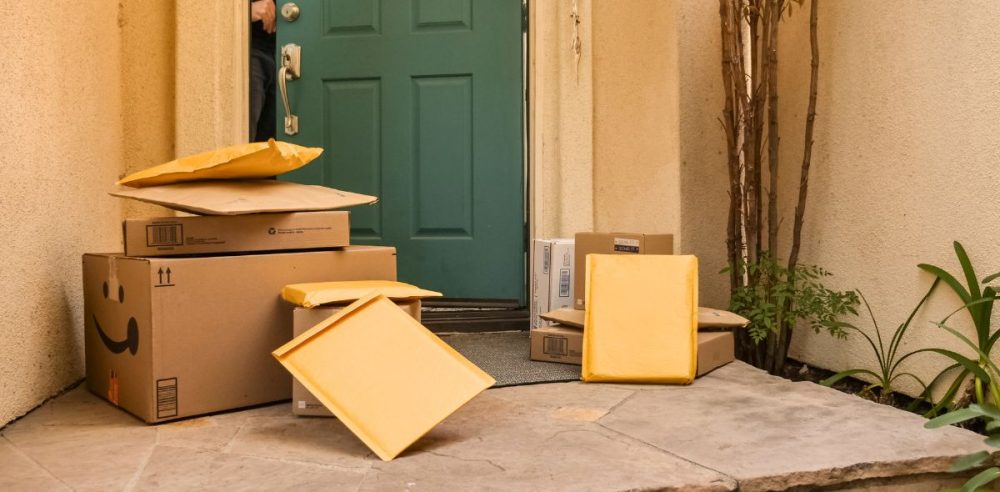Officials are warning of a new package scam that takes porch piracy to the next level.
Instead of stealing random parcels from people’s porches, thieves are now ordering the exact merchandise they want to steal.
Scammers use their victims’ stolen identities and personal financial information to purchase expensive items online and then ship the goods to their homes. However, they use a different email address and phone number for the delivery so that they can track the package delivery.
The fraudsters aim to steal the packages before the victims become aware of the purchase or delivery. They may pose as the recipient and receive the parcel directly from the delivery person or steal it from the victim’s porch or mailbox.
In some cases, if the homeowner has already taken the package inside, the scam artists will knock on the door and ask for the ‘misdelivered’ item. Alternatively, the scammers can request a shipping address change and have the items shipped directly to a drop location.
One such pair of scammers in Louisville, Kentucky, was caught on the homeowner’s doorbell camera as they rehearsed the story they planned to tell the homeowner.
The victim, Sonya Brown, was at home when the delivery person knocked on her door to ask her to sign for the package. After signing, Brown opened the package and discovered two new iPhones worth over $1,000. Brown contacted the sender and discovered someone had opened an account in her name and charged her for the phones. She then contacted the local police, and while she was on the phone with them, two young women came knocking on the door.
Brown heard the young women reminding each other of the name they should use to claim the package, which they planned to say was mistakenly delivered to the victim’s home. Brown did not answer the door but instead turned the package over to the police.
The two women in the video have not been arrested so far, but police are investigating the incident.
Scott County, Indiana, Sheriff Jerry Goodin said that the modern world’s dependence on technology makes such scams easier for criminals, WHAS 11 reported. He urged consumers to stay alert and aware and to report anything suspicious.
“Don’t give out any information on the internet,” he said. “If it sounds dangerous or bad, it probably is.”
“[The internet] can be a very dangerous place if you put all your information on there; it can come back and haunt you,” he added.
In this case, Brown did exactly what the experts recommend victims do in such a situation.
“Contact the retailer, contact police, and turn over the phones,” advised Whitney Adkins of the Better Business Bureau in Louisville, per WHAS.


